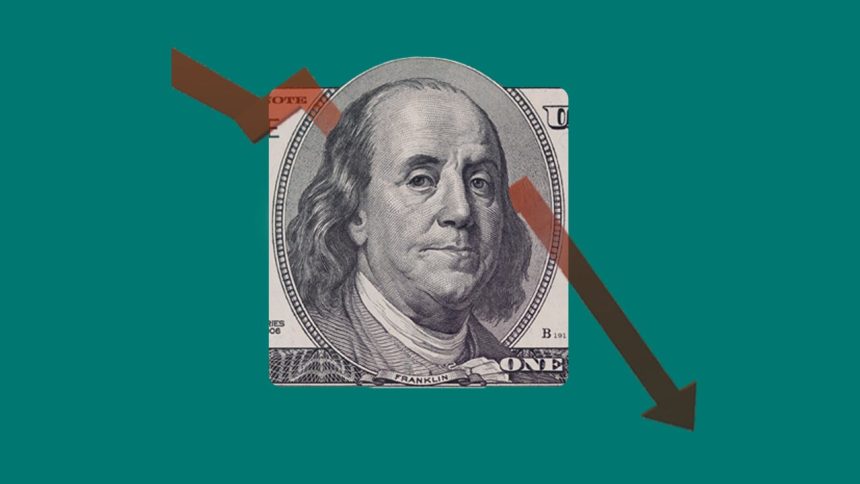It’s easy to feel overwhelmed during times of economic uncertainty. And that’s certainly the case right now, when every scroll through the news or social media floods your nervous system with reminders of all that’s outside your control. One of the biggest sources of anxiety during these moments is not knowing how you’ll support yourself financially.
But this is exactly when grounding yourself in habits that strengthen financial security and emotional regulation becomes essential. In the midst of chaos, returning to what is within your control — your routine, your mindset, your self-care — can help you reclaim a sense of stability and power.
Incorporate these 4 great financial habits to ground your peace
Financial security isn’t a one-time achievement — it’s built through consistent habits. These habits create resilience and offer a sense of control, no matter what’s happening in the world:
- Weekly financial check-ins. Review your bank and credit card accounts once a week. By tracking your balances you can spot issues early and monitor whether your savings and investments are increasing while debt is decreasing.
- Invest in your financial education. Learn about high-yield savings accounts, how to invest for retirement, and when to leverage debt wisely. Financial literacy is a lifelong skill that builds confidence and clarity.
- Check in with your money mindset. Our beliefs about money are often shaped by childhood experiences or past survival strategies. Pause to reflect. Are your current thoughts aligned with your present goals?
- Focus on increasing your income. A 3 percent raise might keep up with inflation — but whenever possible, aim to increase your income by 10 percent or more. More cash flow gives you greater capacity to spend with joy, save meaningfully, pay down debt and invest for the future.
These core habits help you stay grounded and prepared — one step at a time. With good habits like these forming the foundation for your best money mindset, here are some additional steps to take to keep yourself grounded in times of uncertainty.
Prioritize your well-being
Your wellness is a financial priority — not a luxury.
If you’re physically and emotionally depleted, it’s harder to stick to healthy financial routines or make sound decisions. Caring for your body and mind is foundational to financial security.
Use your money to support your wellness
You’re allowed to use money to support your wellness. That may include:
- Therapy to build emotional regulation
- Childcare to create space for rest and focus
- Healthcare appointments and annual checkups
- Relocation if your current environment feels unsafe or draining
Build a low-cost self-care toolbox
Not every form of self-care needs to come with a large price tag. Everyone needs accessible ways to recharge — especially during stressful seasons. Think:
- Reading at the park
- Going on hikes
- Hosting a game night or potluck
- Checking out books or movies from the library
- Attending free community events
Your well-being sustains your ability to stay financially secure. Honor it.
Strengthen your safety net
In uncertain times, cash reserves offer calm and clarity. Together, the following reserves create a baseline of stability. They allow you to breathe, to make thoughtful decisions, and to stay calm when financial challenges arise.
Two Essential Cash Reserve Funds
-
- A checking account buffer — this is a cushion that helps you avoid overdraft fees and financial stress when unexpected expenses come up.
- One month of expenses saved in a high-yield savings account — so you’re not relying on credit cards to get through a tough time.
Prioritize maintaining and growing these funds, even if that means only making minimum payments on your debt for a while. By having money set aside for both emergencies and planned upcoming expenses, you reduce the likelihood of relying on high-interest credit cards — which can quickly drain your budget and make financial recovery more difficult.
Your safety net is one of the best ways to protect your peace.
Once you’re feeling emotionally grounded, physically well and have a safety net in place, you can begin thinking about how to use any extra cash wisely. What you do next depends on your unique situation.
If you’re facing job insecurity or considering leaving a toxic workplace
Stick to minimum debt payments and prioritize growing your emergency savings. Cash on hand will be your greatest ally in uncertain employment situations. By maintaining your minimum payments, you also protect your credit score, which can offer more financial flexibility if you need it later.
If you’re anticipating inflation or rising prices due to tariffs
Start building sinking funds — savings buckets for planned, upcoming expenses. These can include car purchases or repairs, electronics and other big purchases. As the cost of living rises, these reserves will help you avoid relying on credit cards and give you peace of mind when prices spike.
Make sure you’re accounting for increases in groceries, utilities, gas or housing costs. Whether it’s rent going up or an increase in property taxes, you’ll want to start setting more money aside now to stay ahead of the curve.
If you have job stability and no major purchases coming up
Use extra cash to pay down high-interest debt. Just be sure to keep checking expenses, reviewing receipts and adjusting your budget as life evolves.
The key is making financial decisions rooted in your current reality and informed by what’s ahead — not just what feels urgent.
Keep in mind:
The key is making financial decisions rooted in your current reality and informed by what’s ahead — not just what feels urgent.
Track and anticipate price changes
Instead of stressing over what might happen, gently pay attention to what is happening.
Notice how your grocery bills, gas receipts or monthly subscriptions are changing. Watch the cost of essentials you regularly buy, especially if they may be affected by tariffs, supply chain issues or inflation.
- Let data guide your next steps. If you see prices rising, adjust your budget and savings goals. Build small sinking funds to prepare for future cost increases. Stay proactive without panic.
- The goal is informed decision-making. Don’t rely solely on new headlines or social media predictions. Trust your numbers. Use your actual expenses and lived experience to inform your financial decisions. That’s how you stay grounded and adaptable, even when the economy feels shaky.
Choose grounded action over panic
Whether you’ve navigated past recessions, weathered the pandemic or this your first time facing economic uncertainty, know this: you are not powerless.
You can regulate your emotions, care for your body, track your numbers and make thoughtful financial decisions rooted in your current reality not fear. Financial security is never about having it all figured out—it’s about staying present, curious, and committed to your long-term well-being.
Uncertainty is inevitable. But your response can be steady, self-compassionate and true to what matters most.
Read the full article here














